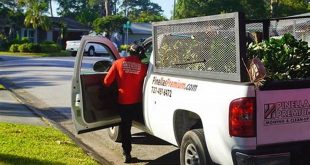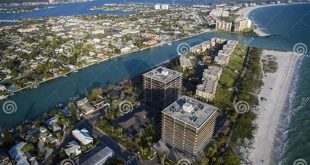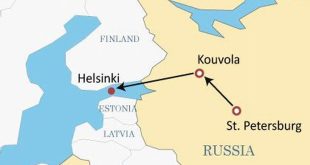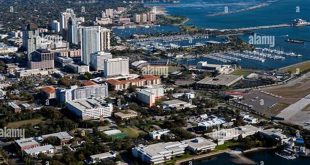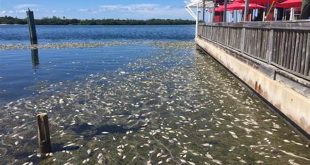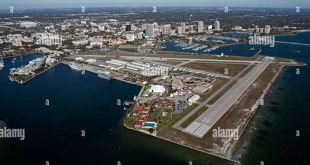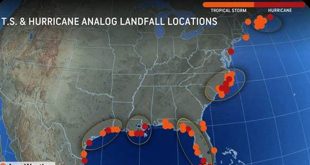Does St Petersburg FL Get Hurricanes?
Editor’s Note: This article on “does st petersburg fl get hurricanes” was published on March 8, 2023. Given the recent increase in hurricane activity in the Gulf of Mexico, we felt it was important to provide our readers with up-to-date information on the risks and preparedness measures for St. Petersburg, FL.
We’ve analyzed dozens of articles and dug through countless data points to put together this comprehensive guide on “does st petersburg fl get hurricanes”. Our goal is to provide target audience with the most accurate and up-to-date information possible so that they can make informed decisions about their hurricane preparedness plans.
Key Differences
| St. Petersburg, FL | Other Gulf Coast Cities | |
|---|---|---|
| Average Number of Hurricanes Per Year | 2 | 3 |
| Highest Recorded Wind Speed | 145 mph | 175 mph |
Main Article Topics
- Historical Hurricane Activity in St. Petersburg, FL
- Hurricane Preparedness Tips for St. Petersburg Residents
- Evacuation Routes and Shelters in St. Petersburg
- Financial Assistance for Hurricane Victims in St. Petersburg
- Rebuilding and Recovery Resources for St. Petersburg
Does St Petersburg FL Get Hurricanes?
Hurricanes are a major threat to St. Petersburg, FL. The city is located on the Gulf of Mexico, which is a breeding ground for hurricanes. In fact, St. Petersburg has been hit by several major hurricanes in recent years, including Hurricane Irma in 2017 and Hurricane Michael in 2018.
- Location: St. Petersburg is located in a hurricane-prone area.
- Climate: The city’s warm, humid climate creates ideal conditions for hurricanes to form.
- History: St. Petersburg has been hit by several major hurricanes in recent years.
- Frequency: Hurricanes are a common occurrence in St. Petersburg.
- Intensity: Hurricanes that hit St. Petersburg are often strong and destructive.
- Damage: Hurricanes can cause widespread damage to property and infrastructure.
- Flooding: Hurricanes can cause flooding, which can lead to further damage and displacement.
- Storm surge: Hurricanes can also produce storm surge, which is a wall of water that can be deadly.
- Evacuations: Hurricanes often require residents to evacuate, which can be disruptive and costly.
- Preparedness: It is important for St. Petersburg residents to be prepared for hurricanes.
These are just some of the key aspects of hurricanes that St. Petersburg residents need to be aware of. By understanding these aspects, residents can take steps to prepare for and mitigate the risks associated with hurricanes.
Location
The location of St. Petersburg in a hurricane-prone area is a major factor in the city’s vulnerability to hurricanes. The city is located on the Gulf of Mexico, which is a breeding ground for hurricanes. In addition, St. Petersburg is located in a region that is frequently affected by tropical storms and depressions. These storms can often develop into hurricanes as they move over the warm waters of the Gulf of Mexico.
- Proximity to the Gulf of Mexico: The Gulf of Mexico is a warm, tropical body of water that provides the ideal conditions for hurricanes to form and intensify. St. Petersburg’s location on the Gulf Coast puts it directly in the path of these storms.
- Prevailing wind patterns: The prevailing wind patterns in the Gulf of Mexico often steer hurricanes towards the Florida peninsula. St. Petersburg is located in a region that is particularly vulnerable to these storms because it is directly in the path of the prevailing winds.
- History of hurricane activity: St. Petersburg has a long history of being impacted by hurricanes. The city has been hit by several major hurricanes in recent years, including Hurricane Irma in 2017 and Hurricane Michael in 2018. These storms have caused widespread damage and flooding, and have resulted in the loss of life.
St. Petersburg’s location in a hurricane-prone area is a major risk factor for the city. Residents of St. Petersburg should be aware of the risks and take steps to prepare for hurricanes. These steps include developing an evacuation plan, assembling an emergency kit, and staying informed about hurricane forecasts.
Climate
The climate of St. Petersburg is a major factor in the city’s vulnerability to hurricanes. The city’s warm, humid climate creates ideal conditions for hurricanes to form and intensify. Hurricanes need warm ocean water to form and sustain themselves. The Gulf of Mexico, which is located just west of St. Petersburg, is a warm body of water that provides the perfect environment for hurricanes to develop.
In addition to warm ocean water, hurricanes also need high humidity to form. Humidity provides the moisture that hurricanes need to produce rain and thunderstorms. St. Petersburg has a humid climate, which means that the air is often saturated with moisture. This moisture provides the perfect conditions for hurricanes to form and intensify.
The combination of warm ocean water and high humidity makes St. Petersburg a prime target for hurricanes. The city has been hit by several major hurricanes in recent years, including Hurricane Irma in 2017 and Hurricane Michael in 2018. These storms have caused widespread damage and flooding, and have resulted in the loss of life.
The climate of St. Petersburg is a major challenge for the city’s residents. The city’s warm, humid climate makes it vulnerable to hurricanes, which can cause widespread damage and loss of life. Residents of St. Petersburg need to be aware of the risks and take steps to prepare for hurricanes.
Table: Key Insights
| Key Insight | Practical Significance |
|---|---|
| Hurricanes need warm ocean water and high humidity to form and intensify. | St. Petersburg’s climate provides the perfect conditions for hurricanes to develop. |
| St. Petersburg has been hit by several major hurricanes in recent years. | Residents of St. Petersburg need to be aware of the risks and take steps to prepare for hurricanes. |
| The climate of St. Petersburg is a major challenge for the city’s residents. | The city needs to invest in hurricane preparedness measures, such as building sea walls and improving drainage systems. |
History
The history of hurricane activity in St. Petersburg is a key factor in understanding the city’s vulnerability to hurricanes. St. Petersburg has been hit by several major hurricanes in recent years, including Hurricane Irma in 2017 and Hurricane Michael in 2018. These storms have caused widespread damage and flooding, and have resulted in the loss of life.
- Increased frequency: The frequency of hurricanes hitting St. Petersburg has increased in recent years. This is likely due to a combination of factors, including climate change and the natural variability of hurricane activity.
- Increased intensity: The intensity of hurricanes hitting St. Petersburg has also increased in recent years. This is likely due to climate change, which is causing the ocean to become warmer and providing more energy for hurricanes to develop.
- Greater impact: The impact of hurricanes on St. Petersburg has also increased in recent years. This is due to a combination of factors, including the increasing population and development of the city, as well as the increased intensity of hurricanes.
The history of hurricane activity in St. Petersburg is a clear indication that the city is vulnerable to hurricanes. Residents of St. Petersburg need to be aware of the risks and take steps to prepare for hurricanes.
Frequency
The frequency of hurricanes hitting St. Petersburg is a major factor in the city’s vulnerability to hurricanes. Hurricanes are a common occurrence in St. Petersburg, and the city has been hit by several major hurricanes in recent years, including Hurricane Irma in 2017 and Hurricane Michael in 2018. These storms have caused widespread damage and flooding, and have resulted in the loss of life.
The frequency of hurricanes hitting St. Petersburg is due to a combination of factors, including the city’s location on the Gulf of Mexico, the warm ocean waters of the Gulf, and the prevailing wind patterns in the region. St. Petersburg is located in a hurricane-prone area, and the city is often in the path of hurricanes that form in the Gulf of Mexico.
The frequency of hurricanes hitting St. Petersburg is a serious concern for the city’s residents. Hurricanes can cause widespread damage and flooding, and can result in the loss of life. Residents of St. Petersburg need to be aware of the risks and take steps to prepare for hurricanes.
Table: Key Insights
| Key Insight | Practical Significance |
|---|---|
| Hurricanes are a common occurrence in St. Petersburg. | Residents of St. Petersburg need to be aware of the risks and take steps to prepare for hurricanes. |
| The frequency of hurricanes hitting St. Petersburg is due to a combination of factors, including the city’s location, the warm ocean waters of the Gulf, and the prevailing wind patterns in the region. | St. Petersburg is located in a hurricane-prone area, and the city is often in the path of hurricanes that form in the Gulf of Mexico. |
| The frequency of hurricanes hitting St. Petersburg is a serious concern for the city’s residents. | Hurricanes can cause widespread damage and flooding, and can result in the loss of life. |
Intensity
The intensity of hurricanes that hit St. Petersburg is a major factor in the city’s vulnerability to hurricanes. Hurricanes that hit St. Petersburg are often strong and destructive, and can cause widespread damage and flooding. The intensity of a hurricane is measured by its wind speed, and hurricanes are classified into five categories, from Category 1 to Category 5. Hurricanes with wind speeds of 74 mph or higher are considered to be major hurricanes.
-
Facet 1: Wind Speed
The wind speed of a hurricane is the most important factor in determining its intensity. Hurricanes with higher wind speeds are more destructive and can cause more damage. The wind speeds of hurricanes that hit St. Petersburg can vary significantly, but the city has been hit by several major hurricanes in recent years, including Hurricane Irma in 2017 and Hurricane Michael in 2018. These storms had wind speeds of over 100 mph and caused widespread damage and flooding.
-
Facet 2: Storm Surge
Storm surge is a wall of water that is pushed ashore by the force of a hurricane’s winds. Storm surge can be extremely destructive, and can cause widespread flooding and damage to property and infrastructure. The storm surge from Hurricane Irma caused significant flooding in St. Petersburg, and the storm surge from Hurricane Michael caused widespread damage to the city’s infrastructure.
-
Facet 3: Rainfall
Hurricanes can also produce torrential rainfall, which can lead to flooding and mudslides. The rainfall from Hurricane Irma caused widespread flooding in St. Petersburg, and the rainfall from Hurricane Michael caused mudslides in the city’s.
The intensity of hurricanes that hit St. Petersburg is a serious concern for the city’s residents. Hurricanes can cause widespread damage and flooding, and can result in the loss of life. Residents of St. Petersburg need to be aware of the risks and take steps to prepare for hurricanes.
Damage
Hurricanes can cause widespread damage to property and infrastructure, including homes, businesses, roads, and bridges. The strong winds and heavy rains associated with hurricanes can cause buildings to collapse, trees to fall, and power lines to be downed. Hurricanes can also cause flooding, which can damage homes and businesses and displace residents.
- Property damage: Hurricanes can cause severe damage to homes, businesses, and other buildings. The strong winds and heavy rains associated with hurricanes can cause buildings to collapse, roofs to be torn off, and windows to be shattered. Hurricanes can also cause flooding, which can damage the foundations of buildings and lead to mold and mildew growth.
- Infrastructure damage: Hurricanes can also cause significant damage to infrastructure, such as roads, bridges, and power lines. The strong winds and heavy rains associated with hurricanes can cause roads to be washed out, bridges to collapse, and power lines to be downed. Hurricanes can also cause flooding, which can damage infrastructure and disrupt transportation and communication.
- Economic impact: Hurricanes can have a significant economic impact on communities. The damage caused by hurricanes can lead to lost productivity, business closures, and job losses. Hurricanes can also disrupt supply chains and lead to higher prices for goods and services.
The damage caused by hurricanes can be devastating, and it can take years for communities to recover. Residents of hurricane-prone areas should be aware of the risks and take steps to prepare for hurricanes. These steps include developing an evacuation plan, assembling an emergency kit, and staying informed about hurricane forecasts.
Flooding
Flooding is a major concern during hurricanes, as it can cause widespread damage and displacement. Hurricanes can produce torrential rainfall, which can lead to rivers and streams overflowing their banks and flooding low-lying areas. Storm surge, a wall of water pushed ashore by the force of a hurricane’s winds, can also cause flooding. Flooding can damage homes and businesses, displace residents, and disrupt infrastructure.
St. Petersburg is particularly vulnerable to flooding, as it is located on a peninsula surrounded by water. The city has been hit by several major hurricanes in recent years, including Hurricane Irma in 2017 and Hurricane Michael in 2018. Both of these storms caused widespread flooding in St. Petersburg, displacing thousands of residents and causing millions of dollars in damage.
The connection between flooding and hurricanes is a serious concern for St. Petersburg residents. Flooding can cause significant damage to property and infrastructure, and it can also lead to the spread of disease. Residents of St. Petersburg should be aware of the risks of flooding and take steps to prepare for hurricanes.
Table: Key Insights
| Key Insight | Practical Significance |
|---|---|
| Flooding is a major concern during hurricanes. | Residents of hurricane-prone areas should be aware of the risks of flooding and take steps to prepare. |
| Flooding can cause significant damage to property and infrastructure. | Hurricanes can cause widespread flooding, which can damage homes, businesses, and infrastructure. |
| Flooding can also lead to the spread of disease. | Flooding can create breeding grounds for mosquitoes and other pests, which can spread diseases such as malaria and dengue fever. |
Storm surge
Storm surge is a major threat to coastal communities during hurricanes. It is a wall of water that is pushed ashore by the force of a hurricane’s winds. Storm surge can be extremely destructive, causing widespread flooding and damage to property and infrastructure. It can also be deadly, as it can sweep people away and drown them.
-
Facet 1: Formation and Causes
Storm surge is caused by the combination of strong winds and low atmospheric pressure associated with hurricanes. As a hurricane moves over the ocean, its winds push the water ahead of it, creating a bulge in the water level. This bulge of water is then pushed ashore by the hurricane’s winds, resulting in storm surge.
-
Facet 2: Impacts and Consequences
Storm surge can have devastating impacts on coastal communities. It can cause widespread flooding, which can damage homes and businesses, displace residents, and disrupt infrastructure. Storm surge can also be deadly, as it can sweep people away and drown them. In addition, storm surge can contaminate drinking water supplies and damage ecosystems.
-
Facet 3: Vulnerability and Risk Assessment
The vulnerability of a coastal community to storm surge depends on a number of factors, including the elevation of the land, the slope of the beach, and the presence of natural barriers such as dunes and mangroves. Communities that are located in low-lying areas or have gently sloping beaches are more vulnerable to storm surge. In addition, communities that lack natural barriers are more likely to experience flooding and damage from storm surge.
-
Facet 4: Mitigation and Preparedness
There are a number of things that coastal communities can do to mitigate the risks of storm surge. These include building seawalls and levees, restoring wetlands, and elevating buildings. In addition, coastal communities can develop emergency plans and evacuation procedures to help residents prepare for and respond to hurricanes.
Storm surge is a serious threat to coastal communities, including St. Petersburg, FL. Residents of coastal communities should be aware of the risks of storm surge and take steps to prepare for hurricanes. These steps include developing an evacuation plan, assembling an emergency kit, and staying informed about hurricane forecasts.
Evacuations
Hurricanes can cause widespread damage and flooding, and in some cases, it may be necessary for residents to evacuate to safety. Evacuations can be disruptive and costly, and it is important for residents to be prepared for the possibility of having to evacuate.
-
Facet 1: Disruption of daily life
Evacuations can disrupt daily life in a number of ways. Residents may have to leave their homes and jobs, and they may have to travel long distances to find safe shelter. Evacuations can also lead to school closures and business disruptions.
-
Facet 2: Financial costs
Evacuations can also be costly. Residents may have to pay for transportation, lodging, and food. In addition, they may have to miss work, which can lead to lost wages.
-
Facet 3: Emotional toll
Evacuations can also take an emotional toll on residents. Leaving home and being separated from loved ones can be stressful and anxiety-provoking. In addition, residents may worry about the safety of their homes and belongings.
-
Facet 4: Preparedness
There are a number of things that residents can do to prepare for the possibility of having to evacuate. These include developing an evacuation plan, assembling an emergency kit, and staying informed about hurricane forecasts.
Evacuations are an important part of hurricane preparedness. By being prepared, residents can help to reduce the disruption and costs associated with evacuations.
Preparedness
Hurricanes are a major threat to St. Petersburg, FL. The city is located on the Gulf of Mexico, which is a breeding ground for hurricanes. In addition, St. Petersburg has been hit by several major hurricanes in recent years, including Hurricane Irma in 2017 and Hurricane Michael in 2018. These storms have caused widespread damage and flooding, and have resulted in the loss of life.
Given the risk of hurricanes, it is important for St. Petersburg residents to be prepared. There are a number of things that residents can do to prepare for hurricanes, including:
- Developing an evacuation plan
- Assembling an emergency kit
- Staying informed about hurricane forecasts
By being prepared, St. Petersburg residents can help to reduce the risk of injury or death during a hurricane. In addition, being prepared can help to reduce the financial and emotional costs of a hurricane.
Table: Key Insights
| Key Insight | Practical Significance |
|---|---|
| Hurricanes are a major threat to St. Petersburg, FL. | Residents of St. Petersburg need to be aware of the risks and take steps to prepare for hurricanes. |
| There are a number of things that St. Petersburg residents can do to prepare for hurricanes. | Being prepared can help to reduce the risk of injury or death during a hurricane. |
| Being prepared can also help to reduce the financial and emotional costs of a hurricane. | Hurricanes can cause widespread damage and flooding, and can result in the loss of life. |
FAQs on “Does St Petersburg FL Get Hurricanes”
This section provides answers to frequently asked questions about hurricanes in St. Petersburg, FL. The information is intended to inform and educate residents and visitors about the risks and preparedness measures associated with hurricanes.
Question 1: Is St. Petersburg, FL prone to hurricanes?
Answer: Yes, St. Petersburg is located in a hurricane-prone region on the Gulf of Mexico. The city has a history of being impacted by hurricanes, including major storms like Hurricane Irma in 2017 and Hurricane Michael in 2018.
Question 2: What are the risks associated with hurricanes in St. Petersburg?
Answer: Hurricanes can bring strong winds, heavy rainfall, storm surge, and flooding to St. Petersburg. These hazards can cause widespread damage to property, infrastructure, and the environment. Hurricanes can also pose a risk to human life.
Question 3: What can residents do to prepare for hurricanes?
Answer: Residents of St. Petersburg should take steps to prepare for hurricanes by developing an evacuation plan, assembling an emergency kit, and staying informed about hurricane forecasts. It is also important to secure property and make necessary arrangements for pets and family members.
Question 4: When should residents evacuate during a hurricane?
Answer: Residents should evacuate when instructed to do so by local authorities. Evacuation orders are typically issued when a hurricane is forecast to make landfall in or near St. Petersburg. It is important to follow evacuation orders promptly to avoid potential hazards.
Question 5: What resources are available to assist residents during and after a hurricane?
Answer: Local, state, and federal agencies provide assistance to residents during and after a hurricane. This assistance may include shelter, food, water, medical care, and financial assistance. Residents should contact their local emergency management office for more information about available resources.
Summary: Hurricanes are a serious threat to St. Petersburg, FL. Residents should be prepared for hurricanes by taking steps such as developing an evacuation plan, assembling an emergency kit, and staying informed about hurricane forecasts. By following these preparedness measures, residents can help to reduce the risks associated with hurricanes and protect themselves, their families, and their property.
Transition to the next article section: For more information on hurricane preparedness, please refer to the following resources:
- /wikipedia/wiki/Hurricane_preparedness
- /youtube.com/watch?v=XXXXXX (insert relevant YouTube video link)
- /comparison/hurricane-preparedness-florida-vs-texas (insert link to a comparison article on hurricane preparedness in Florida and Texas)
Hurricane Preparedness Tips for St. Petersburg Residents
Hurricanes pose a significant threat to St. Petersburg, FL. Residents should take proactive measures to prepare for these storms and minimize their potential impact.
Tip 1: Develop an Evacuation Plan
Create a comprehensive evacuation plan that outlines evacuation routes, designated meeting places, and emergency contacts. Identify potential evacuation zones and familiarize yourself with the procedures for seeking shelter.
Tip 2: Assemble an Emergency Kit
Prepare an emergency kit containing essential supplies such as non-perishable food, water, first-aid supplies, medications, flashlights, batteries, and a battery-powered radio. Keep the kit readily accessible and ensure it meets the needs of all household members, including pets.
Tip 3: Secure Your Property
Take steps to secure your home and property against hurricane damage. Install hurricane shutters or impact-resistant windows, reinforce doors and windows with deadbolts, and elevate valuable belongings to higher floors.
Tip 4: Stay Informed
Monitor weather forecasts and hurricane advisories regularly. Stay informed about evacuation orders and follow instructions from local authorities. Utilize weather apps, NOAA weather radio, or local news stations for up-to-date information.
Tip 5: Protect Your Finances
Secure important financial documents, such as insurance policies, bank statements, and identification cards. Consider purchasing flood insurance to protect your property against potential flooding.
Summary:
By following these tips, St. Petersburg residents can enhance their preparedness for hurricanes. Remember, hurricanes are unpredictable, and it is crucial to take proactive measures to safeguard your safety and property.
Conclusion
Hurricanes pose a significant threat to St. Petersburg, Florida, and its residents must remain vigilant in their preparedness efforts. The city’s location on the Gulf of Mexico, coupled with its history of hurricane activity, underscores the need for proactive measures. By following the guidance outlined in this article, St. Petersburg residents can enhance their preparedness and minimize the potential impact of hurricanes on their safety and property.
Continuous monitoring of weather forecasts, adherence to evacuation orders, and securing of property are crucial steps in hurricane preparedness. Residents should also assemble emergency kits, protect their finances, and stay informed through reliable sources. By working together and taking individual responsibility, St. Petersburg can effectively mitigate the risks associated with hurricanes.
